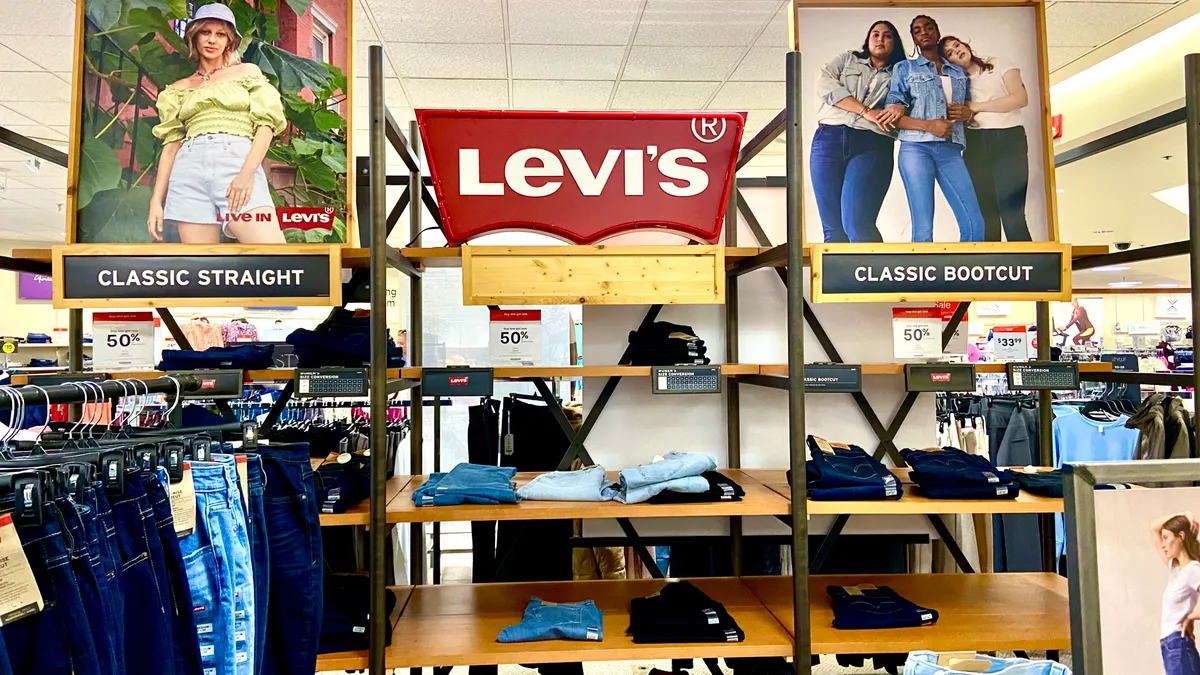Editor's note: The following is part of a series on the e-commerce state sales tax debate. Click here to learn about what's at stake for online and digital players alike.
Should online retailers pay taxes in states where they don't have stores, warehouses or fulfillment centers?
It's a contentious question that's been on the minds of retail executives and tax policy experts for decades — and recently one that has piqued the interest of the highest court in the country.
Next week, The Supreme Court of the United States will hear oral arguments in the case of South Dakota v. Wayfair, Inc. Since a 1992 Supreme Court precedent ruling on Quill Corp. v. North Dakota, online retailers have only been required to collect and remit sales tax in states where they have a physical presence, a standard South Dakota is hoping to strip away in favor of a law that would instead require state sales tax collection and remittance if an online seller does more than $100,000 worth of business or processes more than 200 transactions in the state.
From the viewpoint of South Dakota and other states, it's a multi-billion problem. States are losing between $8.5-$13 billion in uncollected taxes, according to a report published in November by the United States Government Accountability Office. While it might be instinct to first point the finger at Amazon — which swallows over 40% of e-commerce sales — the company isn't to blame, at least directly.
In fact, as a retailer, Amazon has collected and remitted state sales tax in all states since April of last year — in no small part because of its expansion into most states with fulfillment centers, warehouses, stores and other assets that would be considered a physical presence.
While the court's decision won't affect Amazon in large part, it could have an effect on large third party sellers of its marketplace, depending on how the court rules. The case will have a direct impact on e-tailers like Wayfair and Overstock (which are involved in the case before the court) and there's no reason the court will make a direct ruling on marketplace collection, however, some third party sellers may do enough business on Amazon or other marketplaces to be affected, which prompts many more questions.
While Amazon does not provide numbers on how many marketplace sellers it has, it does publicly say that over 40% of total sales units come from third party units. In the company's latest earnings release, Amazon also said last year it shipped "billions" of products for small- and medium-sized businesses.
But of all those businesses, Amazon only collects state sales taxes on behalf of marketplace sellers in a few states, including Washington and Pennsylvania, according to its website. A similar state law in Minnesota will take effect in 2019, and a law in Rhode Island now requires Amazon to report seller information to the state Department of Revenue. Many other states are working on marketplace facilitator laws and SCOTUS' decision may give both states and Congress motivation to pass clearer laws.
While Amazon did not respond to multiple requests for comment on this story, other tax experts who have followed the debate for decades have helped shed light on the potential implications for Amazon marketplace sellers.
An 'existential crisis' for marketplace sellers
For Paul Rafelson, the potential implications of the court's decision on the tax debate were dire enough to spur the birth of a trade association of online merchants (which includes many Amazon third party sellers), the Online Merchants Guild.
"We're in an existential crisis right now," the Pace University law professor and co-founder of the association, told Retail Dive. "There's so much of the community that is not going to be around, and I don't think people realize that, in six months, maybe a year when the full force of what is happening is realized."
The new association, which has roughly 100 members so far, aims to represent a central voice for online merchants that sell across marketplaces. One of its core arguments is that state sales tax collection and remittance responsibility should fall to the marketplaces, and if it doesn't many third party sellers may not be able to foot the bill to collect taxes on their own.
"Before the merchants realize it, they could have a six figure tax compliance bill, being asked to file as many tax returns as a Walmart or Google. For online merchants we represent and so many I've spoken with, there are a very, very small percentage — only the biggest of the big — that can really handle that kind of a burden," he said. "For the rest of them, that's a nonstarter. That's the end of Amazon for these people."
"There's so much of the [Amazon marketplace] community that is not going to be around, and I don't think people realize that, in six months, maybe a year when the full force of what is happening is realized."

Paul Rafelson
Chairman of the Online Merchants Guild
Rafelson said one major concern for these sellers is that they would also be on the hook for back taxes.
Last year, a group of state tax authorities called the Multistate Tax Commission (established in 1967) rolled out a sales tax amnesty program and began urging roughly 45,000 Amazon marketplace sellers that have a significant tax liability to pay up and join an amnesty program that would wipe out back taxes (in roughly 25 states) if they begin taxing future sales. Only 700 signed up by a November deadline, the commission told The Seattle Times.
Rafelson (on behalf of the Online Merchants Guild), Etsy, eBay and Senator Ted Cruz (R-TX) are just a handful of those not directly involved in the case that have collectively filed some 40 amicus briefs to the court for consideration as it mulls a decision. Amazon has not filed a brief.
It's unclear just how many Amazon marketplace sellers could be affected if the court sides with South Dakota on an economic standard as opposed to a physical presence standard. According to Joseph Crosby, CEO and principal at Multistate and tax policy consultant to the Retail Industry Leaders Association, the South Dakota law would likely only apply to a limited number of fairly large sellers. Crosby, who also has a number of retail clients, has been following the e-commerce sales tax debate since Quill was a new law, over 20 years ago.
"I can't imagine any of those sellers would leave the business simply because they had to collect sales tax," he said. "With regard to the rationale to use marketplaces overall, I hesitate to veer too far from what I know, but it seems to me that marketplaces that make it easy for sellers to sell will continue to prosper, whatever that means. Does it mean collecting tax in the future? It might."
Should marketplaces collect the tax?
Now that states are slowly beginning to pass laws that require Amazon to collect on behalf of its sellers and the company has developed a program to abide by these laws, many are wondering: Why doesn't Amazon just collect for marketplace sellers everywhere?
Since Amazon did not respond to requests for comment on this story, it's hard to say with any clarity.
Fulfillment By Amazon, or FBA, has grown at a rapid clip. According to the latest data available, the number of third party sellers using FBA grew by more than half in 2015, after a 65% rise in the year prior, Fortune reports. Scaling its tax collection process across all 45 states that have such levies could be costly to Amazon, although many like Rafelson argue that the company has more cash to spare than individual sellers.
While FBA has become more popular, it's not without kinks. Through the service, Amazon is able to store and move inventory at will without notifying the seller, which means sellers could establish nexus in a state without necessarily knowing it. If a third party seller has nexus in a state but no personal physical presence — who is responsible for paying? That's where it gets tricky.
As a marketplace facilitator, Amazon is responsible for collecting and remitting sales tax on products sold by third party sellers in a few states, including Washington and Pennsylvania, according to the company's website. But as for other states, the responsibility may fall to the seller, or even the consumer.
Scott Peterson, vice president of U.S. Tax Policy at tax compliance vendor Avalara, said the company has been getting more calls from Amazon sellers in particular over the last several months as conversation around the laws has heated up. Many of Avalara's clients sell as third party merchants on Amazon, Etsy, Walmart and eBay, but most tend to sell on just one or maybe two platforms.
"If the Supreme Court abrogates the Quill standard, then I think it is a virtual certainty most if not all sales tax states will look to expand the definition of retailer to include marketplaces."

Joseph Crosby
CEO and principal at Multistate
Peterson believes third party merchants and big retailers alike should be thinking ahead to what their plan will be either way the court decides. "Anyone should put together a map and divide sales volume on that map and look to see where they will exceed pick $100,000 — or in many cases the 200 sales transactions will catch them more — do that and then they can play around," he said. "Ok so say I make X dollars around the U.S. in this map, these states have this law in effect, do I meet that threshold? That's where you need to start planning."
Whether the court sides with South Dakota or not, Peterson said he imagines more states will enact marketplace facilitator laws, which would require marketplaces to collect on behalf of their sellers. And if the court upholds the physical presence standard in Quill, more states may also enforce use taxes, which move the responsibility to the consumer to pay sales taxes on items directly to the state after the fact. Many retailers and states agree that putting the burden on the consumer isn't an ideal solution — and in many cases it's much harder to actually enforce.
For one thing, most consumers don't have the faintest idea what a use tax is and whether they actually have to pay it.
Instead of having millions of third party sellers or consumers collect and/or remit sales taxes, many states have mulled legislation that would hold marketplaces like Amazon, Ebay, Walmart, Jet and others accountable for the process.
It's not a new idea, Crosby said. "It's to me, completely rational from the state perspective to look and see 'well I have X marketplaces that are selling to consumers in my state and I have 1000 times that number of folks selling through those marketplaces. It will be easier for me as a state to have those relatively small number of marketplaces that have nexus collect," he said.
"That leads to the second question: What about those that don't have nexus? And that's kind of the link to the court case. If the Supreme Court abrogates the Quill standard, then I think it is a virtual certainty most, if not all sales tax states will look to expand the definition of retailer to include marketplaces."
Look out Amazon, the states are coming.





















